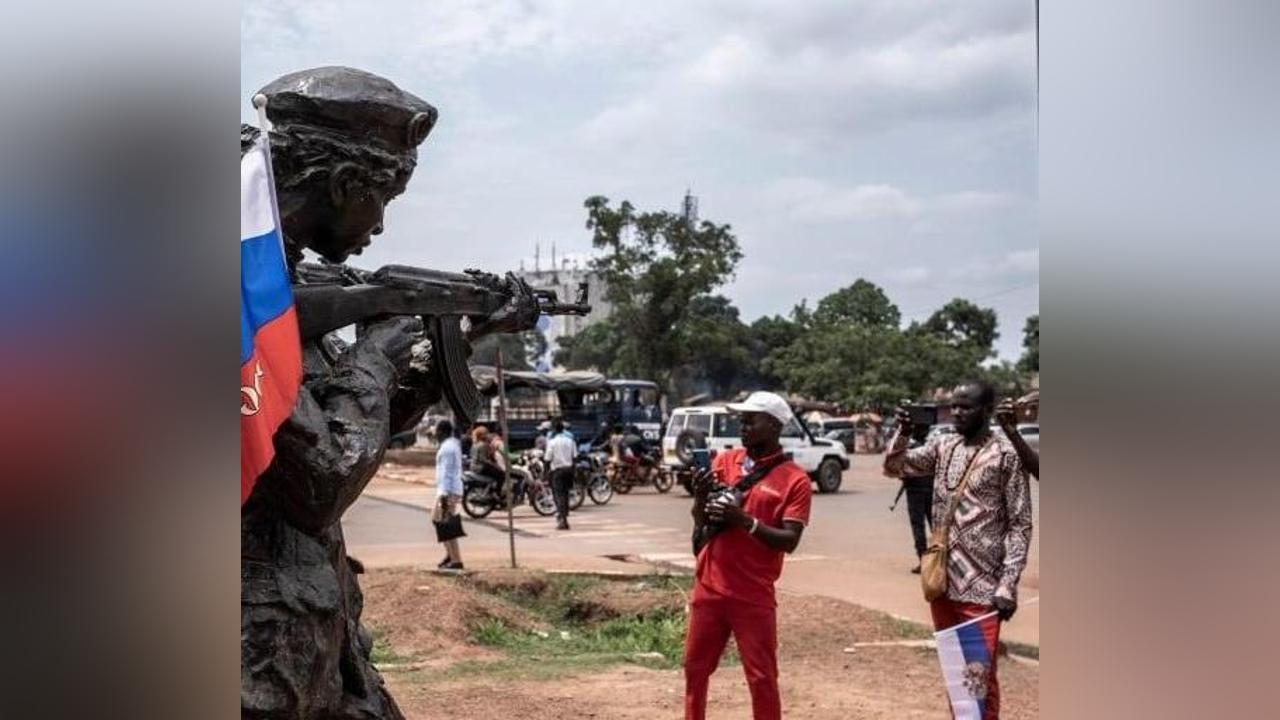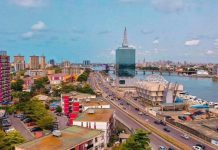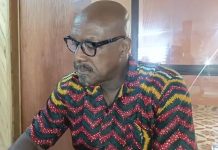Nick Logan
Africa-Press – Liberia. Wagner played key role in Russia’s invasion of Ukraine, but expanded its business in African nations’ turmoil
There’s money to be made in chaos and the Russian private military contractor known as the Wagner Group knows how to capitalize on it.
PMC Wagner (Private Military Company), as it is formally known, is part mercenary force and part multinational enterprise.
It has commanded a great deal of international attention for its role in Russia’s invasion of Ukraine and for its founder Yevgeny Prigozhin’s ties to the Kremlin and President Vladimir Putin.
But it has been building its business — and its influence — in Africa for several years, where it has traded its security forces, military training and propaganda services for access to valuable economic resources, according to the Council on Foreign Relations think tank.
The European Union and the United States recently imposed sanctions on Wagner specifically related to its activities across Africa. The Canadian government has not followed suit, though it has sanctioned various people and entities associated with Wagner — including Prigozhin — related to Russia’s invasion of Ukraine.
Wagner may not be the only private military company contracted by governments in Africa — PMCs from China, South Africa, and the U.S. are known to operate across the continent — but it operates differently and more secretively, said Sergey Sukhankin, a senior fellow with the Jamestown Foundation, a Washington, D.C.-based think tank.
“Russia is using criminals, mercenaries [and] war criminals in sovereign countries in Africa, in Ukraine and other countries,” he told CBC News from Edmonton.
A stepping stone in Sudan
Sukhankin said Wagner first emerged in Ukraine in 2014, when hostilities broke out in the eastern Donbas region. It was later involved in operations in the Syrian civil war, supporting the regime of Bashar al-Assad in battles against armed opposition groups and the so-called Islamic State.
It found its toehold in Africa in Sudan in 2017, where analysts said it began to build a business out of exploiting political instability.
In exchange for gold mining concessions, Wagner allegedly offered former president Omar al-Bashir security, surveillance and logistics training for Sudanese forces “in order to put down domestic unrest” at a time when the long-time dictator was facing protests and losing the support of some of his regional backers, explained Khalid Mustafa Medani, an associate professor of Political Science and Islamic Studies at McGill University.
Wagner has maintained relationships with the Sudanese Armed Forces, which has controlled the country since a popular uprising toppled Bashir in 2019, and the paramilitary Rapid Support Forces (RSF). Those two groups are now in a power struggle and have been fighting each other since April.
It’s not clear what, if any, support Wagner may be providing to either side; Prigozhin denied any involvement in Sudan’s internal conflict last month.
Although Wagner has worked closely with the RSF in protecting its gold smuggling operations, Medani said it hasn’t necessarily taken a side in the conflict.
“[Its] primary objective is to secure their financial and military interest and they’re not 100 per cent sure who’s going to win,” he said. “They hedge their bets.”
Going for gold
Wagner has created other opportunities out of turmoil across Africa, notably in former French colonies such as the Central African Republic (CAR), Mali and Burkina Faso, that have endured civil war, insurgencies or coup d’etats in recent years, the Council on Foreign relations reported.
Wagner mercenaries have been present in civil war-torn CAR since 2018 as military instructors. They now protect the president and patrol the streets of capital Bangui, while also overseeing and profiting from the exploitation of the impoverished country’s gold, diamond and logging resources.
In January testimony before Congress, the U.S. Under Secretary for Political Affairs claimed Wagner controlled gold mines in Mali, where its mercenaries have reportedly been active since 2021. Mali, one of Africa’s largest gold producers, has been ruled by a military junta following successive coups in 2020 and 2021.
Human rights organizations have accused Wagner forces of committing abuses, including torture and killings, in both CAR and Mali. A UN report linked Wagner and Malian forces to a March 2022 massacre of more than 500 people, largely civilians, over five days in the village of Moura, in Central Mali. Dozens of women and girls were raped in the attack, the UN reported.
According to the Associated Press, Burkina Faso authorities requested nearly $30 million US in gold from its mines to be handed over for “public necessity,” raising the spectre of it being used to hire Wagner, following the expulsion of the French military earlier this year, months after a coup replaced one military leader with another.
Burkina Faso’s government denied this, but said it had asked Russia to send military trainers to the country.
Around the same time, a propaganda video appeared online featuring fighters dressed in Wagner uniforms fighting alongside Malian and Burkinabe soldiers against skeletons in French military helmets, before implying that Ivory Coast would be a subsequent front.
Sanctions, designation may be ineffective
Despite the attention, Sukhankin questions the capabilities of Wagner mercenaries to combat local armed factions, pointing to a botched intervention against an Islamist insurgency in northern Mozambique.
“Wagner Group, in many ways, acts like the Soviet military advisors during the Cold War,” he said. The Soviet military, he continued, was not the most successful in “organizing counter-guerrilla movements.”
Sukhankin said there are limits on Wagner’s reach on the continent; it has not found footing in nations with relative wealth, stability and reputable governments. Rather, he said it makes inroads in countries that could be seen as “pariah states.”
There is growing pressure on Western governments to impose harsher sanctions on Wagner and designate it as a terrorist organization. Canadian MPs who voted unanimously in January to call on the federal government to do just that.
But Medani doesn’t really think sanctions or terrorism designations will hinder Wagner, saying much of the company’s wealth and assets are smuggled through third countries.
Sukhankin agreed. But he thinks a terrorist designation could carry some weight, at least when it comes to stable governments in Africa — or anywhere else — because they “will not engage in any activities with [a] terrorist organization.”
cbc.ca
For More News And Analysis About Liberia Follow Africa-Press






